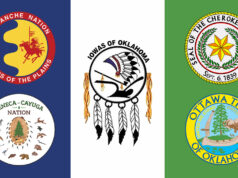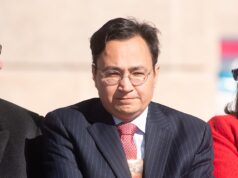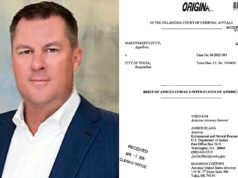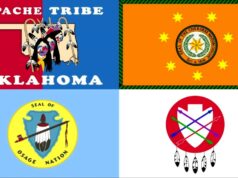

The Cherokee Nation’s general election is set for Saturday, June 3, and the race for principal chief has featured lawsuits, disagreements over health care and questions about financial decisions.
Elected in 2019, incumbent Principal Chief Chuck Hoskin Jr. is vying to retain his seat for a second four-year term, but the three candidates running against him all have bones to pick with his administration.
Cherokee Nation citizens will also be voting for deputy chief on Election Day. Although candidates for Cherokee Nation principal chief and deputy chief sometimes run together as a unified ticket, citizens vote for each position separately.
Currently, Hoskin and incumbent Deputy Chief Bryan Warner are running together, and Cara Cowan Watts and David Walkingstick are campaigning as a team. Principal chief candidates Wes Nofire and David Cornsilk are running their campaigns individually.
In the closing weeks of the campaign, Hoskin has contrasted himself against a familiar political foe: Oklahoma Gov. Kevin Stitt, a Cherokee citizen who drew the ire of Hoskin last week after inaccurately claiming that “over half the votes come from California.”
Stitt, who also said he has never voted in a Cherokee Nation election, said earlier this month that he would not be endorsing Hoskin after the incumbent Cherokee chief endorsed his opponent in Oklahoma’s 2022 general election. Stitt mentioned Cowan Watts and Nofire by name, calling Nofire a “great Oklahoman” and a “good guy.”
“Chuck Hoskin’s the one that said he didn’t want to fly the Oklahoma flag,” Stitt said. “So yeah, I’m not going to be endorsing him. He stood up and endorsed my opponent.”
Hoskin’s campaign has referenced Stitt’s criticism on social media multiple times, perhaps viewing Stitt’s praise for other principal chief candidates as a positive for him among a Cherokee Nation electorate often frustrated by the governor’s rhetoric and actions.
If Hoskin and Warner win reelection, they would be ineligible to run for principal chief and deputy chief again until 2031. The Cherokee Constitution prohibits more than two consecutive terms and requires consecutively elected officials to take a term off before running for office again.
The Cherokee Nation recently surpassed 450,000 enrolled tribal citizens. However, only 13,795 people participated in the 2019 principal chief election. As of May 8, about 78,400 citizens are registered to vote in the Cherokee Nation.
In addition to the principal and deputy chief elections, eight positions on the 17-member Cherokee Nation Tribal Council are also up for election Saturday.
Cherokee citizens can vote early or drop off absentee ballots at the Election Commission office in Tahlequah between 7 a.m. and 7 p.m. through Thursday, June 1. On Saturday’s Election Day, precinct polling locations will be open between 7 a.m. and 7 p.m.
Candidates need to secure more than 50 percent to win Saturday’s general election outright and avoid a runoff. If necessary, runoff elections are scheduled to be held Saturday, July 8.
The following summary of the Cherokee Nation principal chief race is drawn primarily from news reports, government documents, campaign websites and a debate among the four candidates hosted by the Cherokee Phoenix on April 25.
Wes Nofire critical of public official pay raises
During the two-hour debate on April 25, Hoskin’s challengers let their criticisms fly.
“The Cherokee people need a leader right now more than ever that leads with love,” Nofire said. “You’ve witnessed, and I’ve heard firsthand, of the empty promises and unmet needs to our elders in an unsustainable future for our children.”
A self-described conservative Christian, Nofire currently represents District 3 on the Cherokee Nation Tribal Council. A real estate agent in Tahlequah and a former professional boxer, Nofire finished seventh in the 2022 Republican primary for an open seat representing Oklahoma’s 2nd Congressional District.
If elected, Nofire said he wants to make the Cherokee Nation self-sufficient, so it no longer has to rely on the federal government for funding. The Cherokee Nation received $70 million from the federal government for Fiscal Year 2023, according to the tribe’s budget.

In February 2022, Nofire filed a lawsuit against Hoskin and the Tribal Council challenging the Compensation Act, which councilmembers had passed in November 2021.
The act amended the powers and practices of the Citizen Committee on Compensation and relinquished the Tribal Council’s authority to reject proposed salary adjustments for elected officials. Further, the act allowed the committee to set salaries unilaterally and give raises and issue benefits as members see fit.
In his lawsuit, Nofire alleged that the act “violates the Cherokee Nation Constitution.”
A month before Nofire filed his lawsuit, the Citizen Committee on Compensation for Elected Officials of the Cherokee Nation had granted stair-stepped pay raises to the principal chief, the deputy chief and Tribal Council members. The committee also issued retirement, health care and death benefits to former elected officials.
The raises took immediate effect and increase by increments every fiscal year, per the committee’s final report. The salaries of all Cherokee Nation elected officials, minus the Tribal Council speaker, initially increased by 57 percent. By Fiscal Year 2024, elected officials’ salaries will have increased by 92 percent overall.
Before the committee’s pay raise decision, Hoskin had been earning $190,000 annually as principal chief. Now, he makes $335,000 per year. After Oct. 1, the principal chief’s salary is set to become $365,000 per year.
“The council did not approve the expenditures that the committee determined and set for compensation of current and former elected officials,” the lawsuit said. “By delegating their legislative authority to the committee, council members do not investigate or deliberate, and the people that elected them have no one to speak for them.”
In 2019, the Tribal Council voted to reject the committee’s proposed salary increases. The legislation to reject the increases was authored by then-District 3 Councilor David Walkingstick, District 8 Councilor Shawn Crittenden and then District 12 Councilor Dick Lay, who ran against Hoskin for principal chief earlier that year.
“Appropriate compensation for our critical elected positions should not be a political issue,” the committee’s report said. “Indeed, the Council of the Cherokee Nation, in its wisdom, removed political decisionmakers from determining elected official pay and placed it in the hands of this committee.”
The members of the Citizens Committee on Compensation are appointed. Two members are appointed by the principal chief, two are appointed by the Tribal Council, and the fifth member is chosen by the four appointees.
“The Citizen Committee on Compensation did its duty as required by Cherokee law,” Hoskin said in a statement to the Cherokee Phoenix. “No elected official — not me, Deputy Chief Warner or any member of the council — voted themselves a pay raise. I will continue to give every ounce of my energy and dedication to serving the Cherokee people and making investments that strengthen our tribe, no matter the pay.”
Both the Tribal Council and Hoskin filed motions to dismiss Nofire’s lawsuit in March. According to the Cherokee Constitution, Nofire had 14 days to respond to the motions. By March 28, no objections had been filed, and the Cherokee Nation District Court issued an order dismissing the matter entirely. The court also responded to Nofire’s allegations saying they have “no credible legal merit.”
Cara Cowan Watts sued over privacy laws

Running mates Cara Cowan Watts and David Walkingstick kicked off their campaign in February, promoting education, government transparency and elder care.
“Why am I excited about serving the Cherokee Nation as the next chief? Because we must restore a priority focus on our Cherokees, on our Cherokee families,” Watts said during the April 25 debate. “We can see by the actions of the current administration and the last 12 years of those in leadership that our Cherokees have not been put as a priority in our own nation.”
From 2003 to 2015, Watts served on the Cherokee Nation Tribal Council, representing parts of Rogers and Tulsa counties. She holds three engineering degrees, runs a family-owned construction company and operates a small ranch with her husband. Watts filed to run for principal chief in 2015 but withdrew from the race a month later.
In the April 25 debate, Watts said Hoskin’s current administration is failing to pay and retain health care providers properly. She also expressed interest in setting up a database of Cherokee Nation resumes to better fill vacant positions. If elected, she and Walkingstick, her deputy chief running mate, have vowed to transform the principal chief’s mansion into a domestic abuse shelter.
On April 24, five Cherokee citizens sued Watts and Walkingstick, accusing them of breaking privacy laws by providing tribal voters’ information on their campaign website.
According to the lawsuit, the database was a “registration checker” and provided the names and addresses of every Cherokee citizen. A Cherokee Nation District Court judge issued an order mandating Watts and Walkingstick remove the “registration checker” from their website and do whatever necessary to “eliminate internet access to the private information of Cherokee citizens in their possession.”
In a court filing, Walkingstick defended his and Watts’ website by criticizing those who had filed the lawsuit against them.
“Plaintiffs abuse of the judicial system to give media credibility for them throwing unsupported political ‘red meat’ to the press, shows the lack of credulity of their claims for irreparable harm, and completely fails to serve as any proof of any of their allegations,” wrote Walkingstick, who is running for deputy chief this year after being disqualified over alleged campaign violations during his 2019 principal chief race.
David Cornsilk decries ‘wasteful spending’
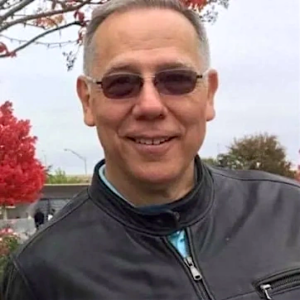
David Cornsilk, the former editor of the Cherokee Observer and Stilwell Times, is running a solo campaign for principal chief.
“I believe that the Cherokee Nation has been derailed,” Cornsilk said. “I do think that there are many good things that have happened at the Cherokee Nation. I’m not saying there are terrible things that have gone on, but there are things that have happened that I believe the Cherokee people need to know about.”
Cornsilk spent eight years as a research analyst for the Cherokee Nation Registration Office. He helped write the tribal constitution and has served as a lay advocate practicing law in the Cherokee Nation Supreme Court.
Cornsilk said many of the Cherokee Nation’s issues stem from wasteful spending. He referenced a $10 million gymnasium and community center project in Marble City, Sequoyah County a town with a population of 186. The new facility will replace the original Marble City gym, which was built in 1911.
Cornsilk’s website features numerous blog posts, including one from March 18 that emphasizes a desire for the Cherokee Nation to change relations with neighboring smaller tribes.
“Hoskin’s foot has been firmly planted on the necks of the United Keetoowah Band (UKB), Delaware and Shawnee tribes. His policies have deprived these tribes their sovereignty and economic growth guaranteed to them by the Treaty of 1866,” Cornsilk wrote. “As your chief I will stop the fighting with these tribes that has cost our tribe millions in cash and goodwill among our people. Self-determination and economic growth for all will be my priority.”
Cornsilk has also vowed to protect the Cherokee Freedmen’s right to citizenship, and he also said he wants to establish a rent-to-own housing program.
Chuck Hoskin Jr. runs on his record
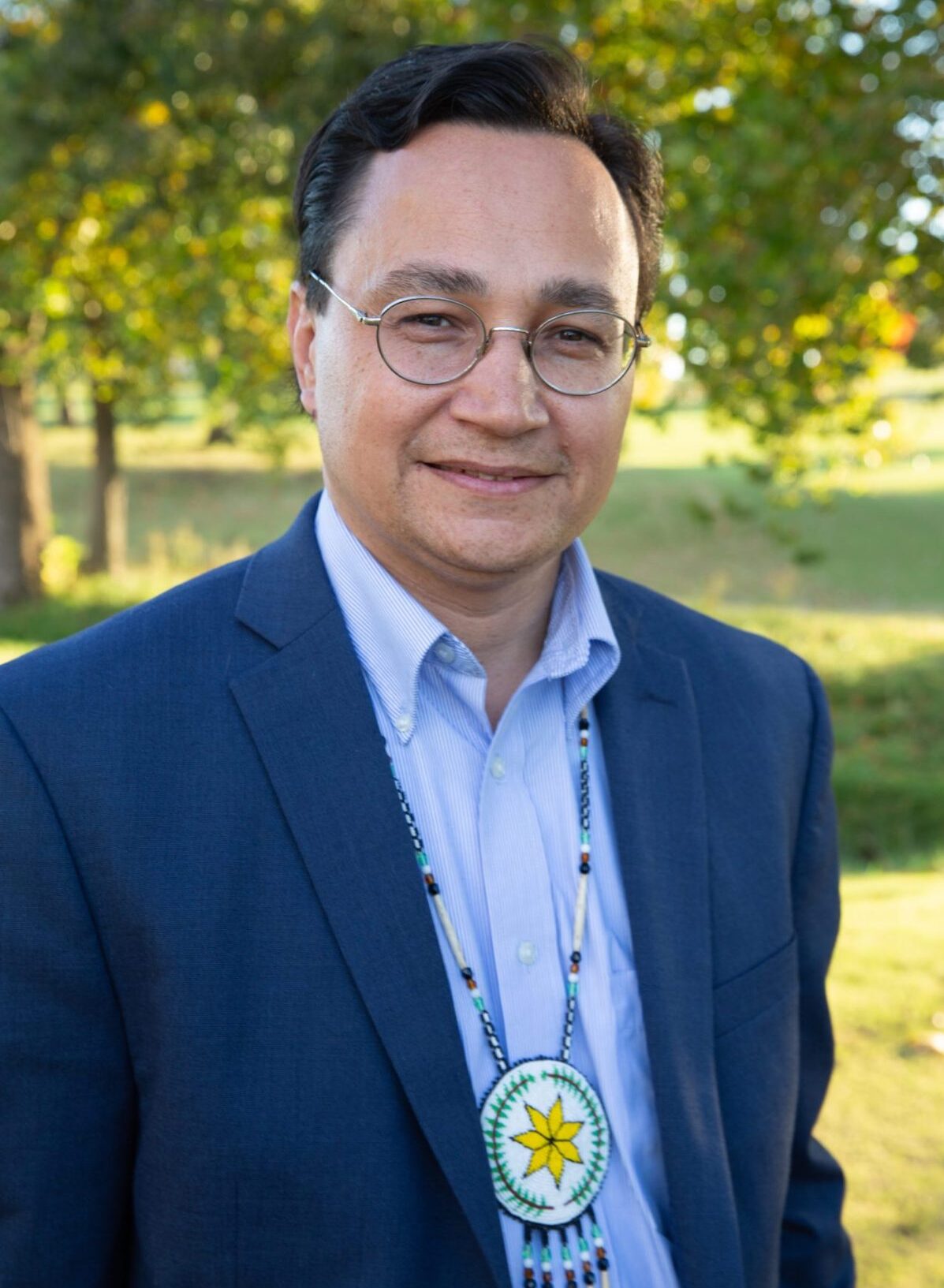
Principal Chief Chuck Hoskin Jr. was elected in June 2019 with 57.5 percent of the 13,795 votes cast by Cherokee Nation voters. Before his election, he served as the secretary of state under former Principal Chief Bill John Baker.
“Apart from my role as a father, husband and grandfather, serving as chief of the Cherokee Nation is the most important thing I do, and I treat it that way,” Hoskin said during the April 25 debate. “It’s been an honor of my life to represent you as chief. I give you my best effort each day. I’m running for reelection to serve you.”
Hoskin previously served on the Cherokee Nation Tribal Council representing District 9 and, after redistricting, District 11. Since becoming principal chief, he said his administration has focused on home construction and ownership, health care, employment and the preservation of culture and language.
In the debate, Hoskin touted the construction of a $35 million health care facility to replace the 27-year-old Salina Health Center along Lake Hudson in eastern Mayes County. He also mentioned the expansion of the Cherokee Nation Eyeglass Program, which allows all Cherokees access to prescription eyeglass vouchers regardless of age, income or health diagnosis. Expressing a desire to expand his tribe’s behavioral health care system, Hoskin vowed to help those struggling with opioid addiction.
Hoskin is also a registered Democrat. Complaints of partisanship toward the Democratic Party have been lodged at the office of principal chief since Baker was elected more than a decade ago.
Most recently, Hoskin joined leaders of the Chickasaw, Muscogee, Choctaw and Seminole nations in endorsing Superintendent of Public Instruction Joy Hofmeister’s campaign as a Democrat for governor in 2022. Beginning with gaming compact negotiations in 2019, Stitt has clashed with tribal leaders over a myriad of inter-government arrangements, and Hoskin has been a stern critic.
“As a general matter, as principal chief, I’ve not seen it within the scope of my office to endorse,” Hoskin told the Tribal Council on Oct. 11. “But the exception to the rule, I think, is this governor’s race. In fact, I think to not weigh in on this particular governor’s race would be really a dereliction of duty given what’s at stake. Silence to me would have been complicity in terms of a governor who has attacked tribes at every turn.”
The results of the June 3 general election are expected to be posted on the Cherokee Nation Election Commission’s website.











